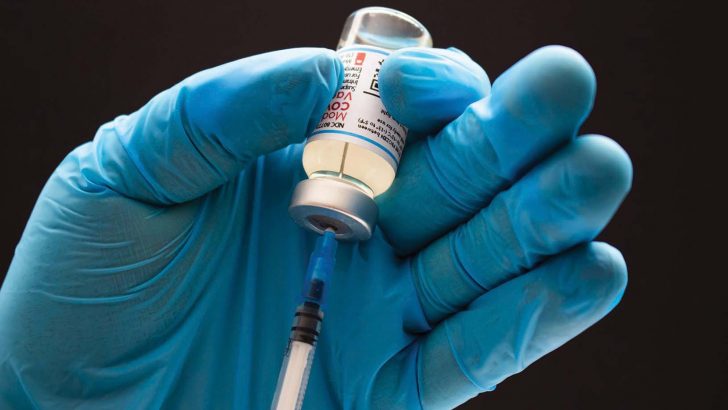Medical Matters
This month figures show that the number of confirmed cases of Covid-19 in the Republic of Ireland has surpassed 400,000 since the pandemic began. The death toll due to the coronovirus now stands at more than 5,000 of which about 75% occurred in those aged over 75. In fact, half of all deaths were in only a two-month period, and were accounted for by fatalites in January this year and in April of 2020 during the first wave of the pandemic.
While 92% of the entire adult population are now fully vaccinated, a period of relative stability in case numbers seems to have given way to a recent increase in Covid diagnoses and hospitalisations.
Despite this, vaccine efficacy at preventing severe disease remains high at about 90% and of those in intensive care about two thirds were not fully vaccinated. However, a significant minority of people, especially those with weaker immune systems and chronic underlying conditions are susceptible. In fact, between March and September of this year, there were over 100 deaths due to ‘breakthrough Covid’ in fully vaccinated people.
Merits
This has brought into question the merits of a third or booster vaccine, which recently got ‘emergency approval’ by both the European Medical Agency (EMA) and the FDA in the US. But what is the evidence that such an approach works, or is safe and to which groups of people should it be targeted towards?
Efficacy
Studies show a significant decline in vaccine efficacy (after 6 months) for prevention of infection with the delta strain in those over 65. Despite this, any increase in the risk of hospitalisation in the same age group was small. A review in the Lancet this month concluded that current evidence does not show a need for boosters in the general population at present. Indeed, it has been estimated that about 500 adults over 65 would need to be given boosters to present one hospital admission over 6 months. The corresponding figure for those aged 50-64 is about 2,000. Furthermore, the WHO has call for a ‘moratorium” on vaccine boosters until the benefit of primary vaccination is made available globally.
We know however, that mRNA vaccines do not prevent symptomatic Covid in about 5% of adults where there is probably an inadequate immune response. Even in those where the vaccine initially works well, antibody levels drop after 6 months and in high-risk groups ‘severe’ breakthrough infection and death have occurred. A small trial using a booster dose of the Pfizer vaccine 6 months after full vaccination resulted in good increases in immune response. Data from Israel, where a booster dose of the Pfizer vaccine was given to people aged 60+ at least 5 months after their initial immunisation resulted in a reduction in severe illness, though follow up was short. However, studies to date do not show an increased risk of any serious side effects and suggest that boosters are safe.
Booster
For this reason, it makes sense to target booster doses to adults most at risk, though countries have adopted different approaches as to who this should include. In Ireland, it is recommended that all adults aged 80 or over and those 65+ in long term facilities who were vaccinated at least 6 months ago should have a booster dose. Additionally, patients at risk due to underlying medical conditions that weaken their immune system should also receive a third dose which may be given within six months of their first completed vaccination. Other countries including the UK have a broader inclusion criteria. For example, in England, it is also advised for all adults over 50 as well as frontline health and social workers. Importantly, some hospital staff who were fully vaccinated earlier in the year are now developing symptomatic Covid and albeit with mild symptoms, pose a serious risk for transmission to vulnerable patients.
Booster doses are ultimately likely to be required in the general population but can be adapted to new variants that arise in the future. However, more studies on the dose required and potential timing of such vaccines are needed, as well as surveillance for side effects. Global inequity to vaccine access is also a big problem with only 2.5% of people in low income countries having had one dose.
On a positive note, the first oral antiviral (molnupiravir) used to treat Covid was found to reduce the risk of hospitalisation or death by about 50% in patients with mild or moderate disease. The clinical trial which included 775 patients with early Covid identified positive results after the drug was taken twice daily for 5 days. By targeting the virus in the early stage of illness, this easy to take tablet has the potential to


 Dr Kevin McCarroll
Dr Kevin McCarroll
